Abstract
The purpose of this study was to determine whether elderly patients receiving cancer chemotherapy experience more emotional distress, difficulty with side effects, and disruption in activities than younger patients. A sample of 217 patients receiving initial chemotherapy treatment for breast cancer or lymphoma was interviewed several times over the first 6 months of treatment. Patients ranged in age from 19 to 83. Included in the interviews were questions on presence, duration, and severity of side effects; response of disease to treatment; and 0-10 ratings of emotional distress, difficulty, and life disruption due to chemotherapy. Information on drugs given, doses, and schedules was obtained from medical charts. In general, elderly patients reported no more difficulty with treatment or emotional distress than did younger patients. This general pattern held across disease types, with some exceptions. These results, combined with previously published studies on the physiological effects of chemotherapy in the elderly, indicate that aggressive treatment should not be withheld from older patients simply because of their age.
Full text
PDF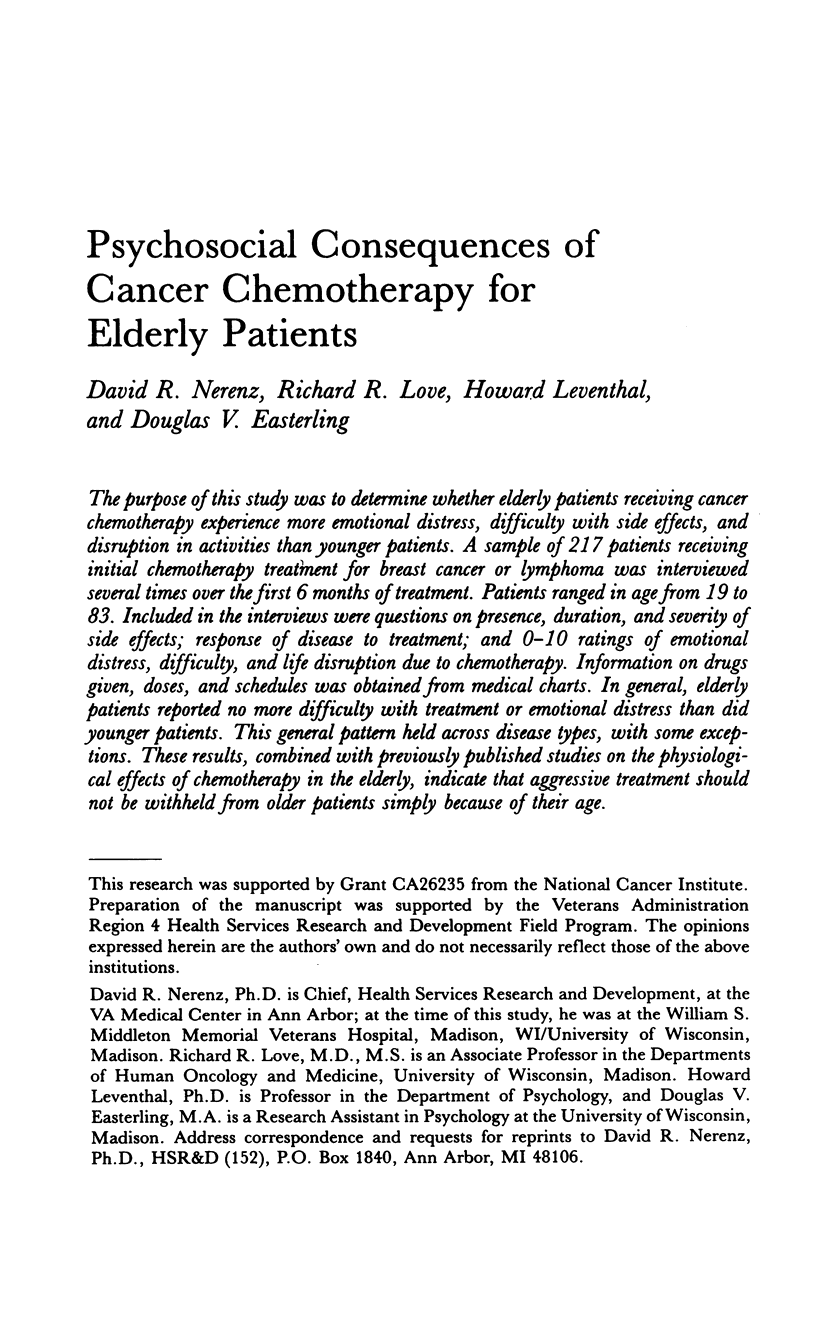
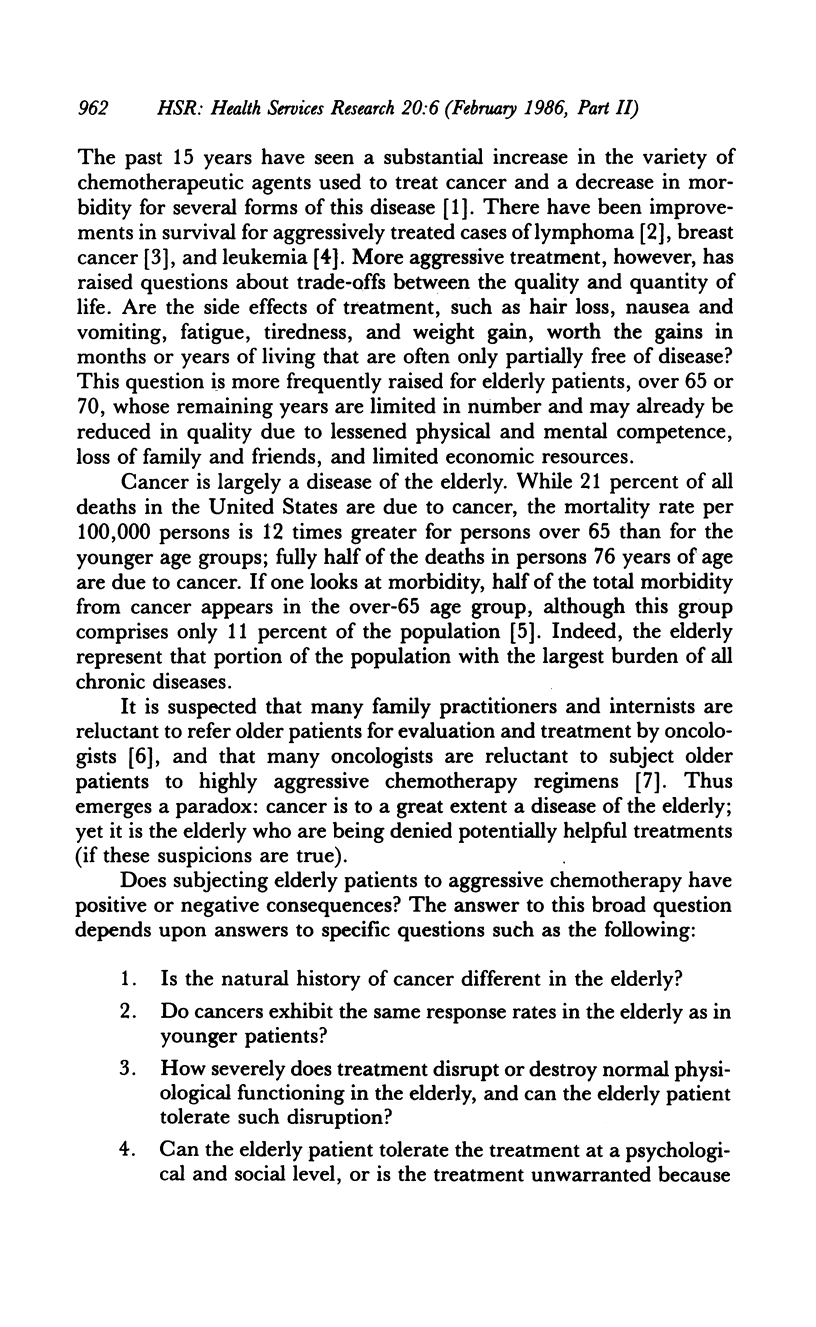
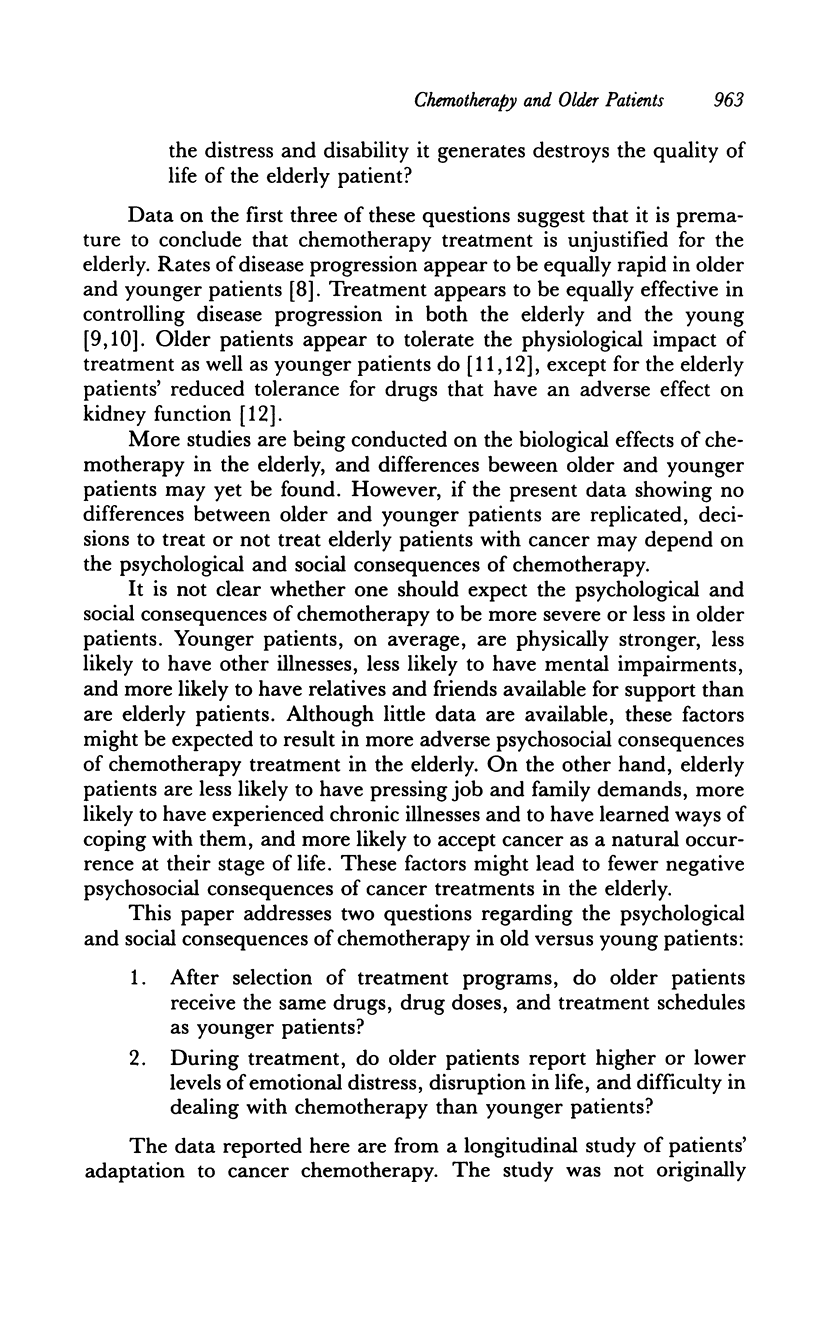
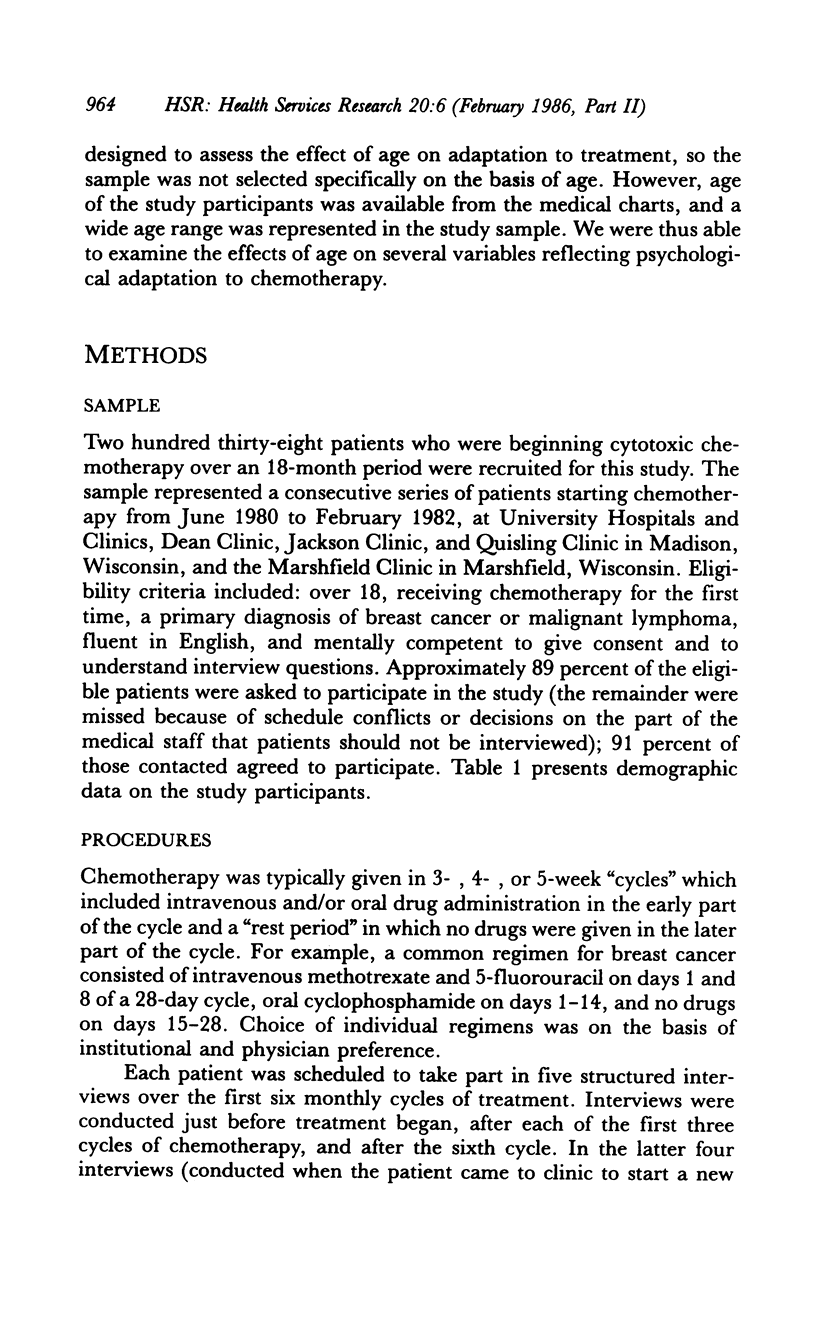
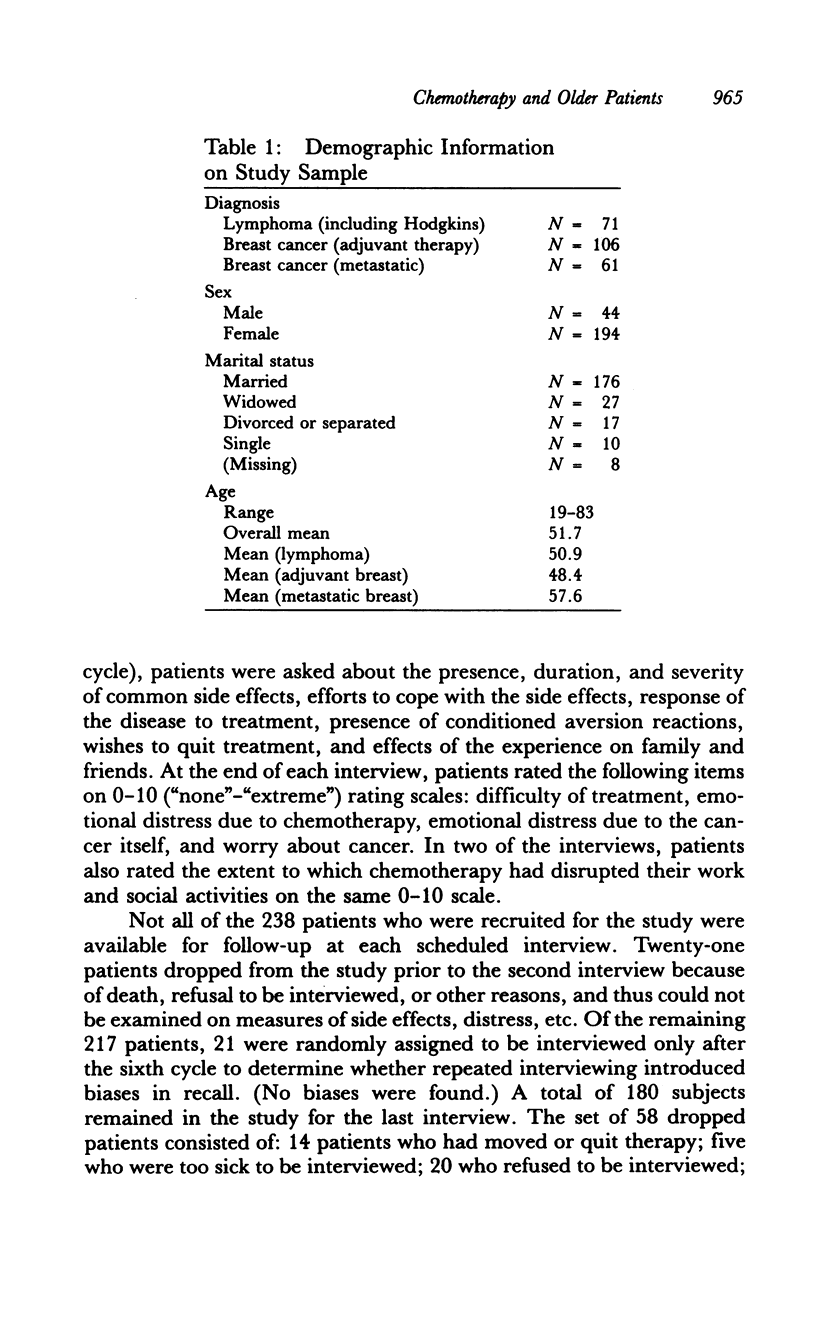
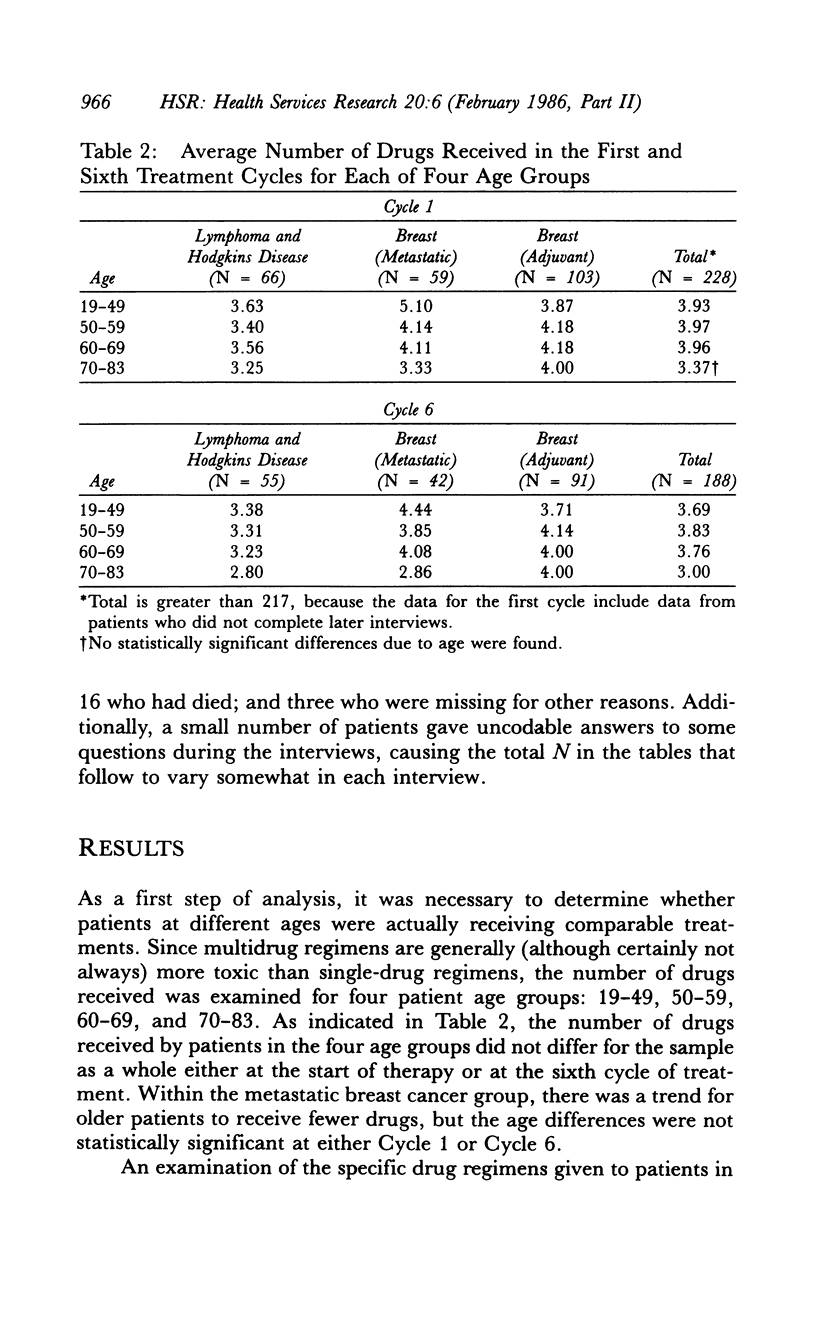
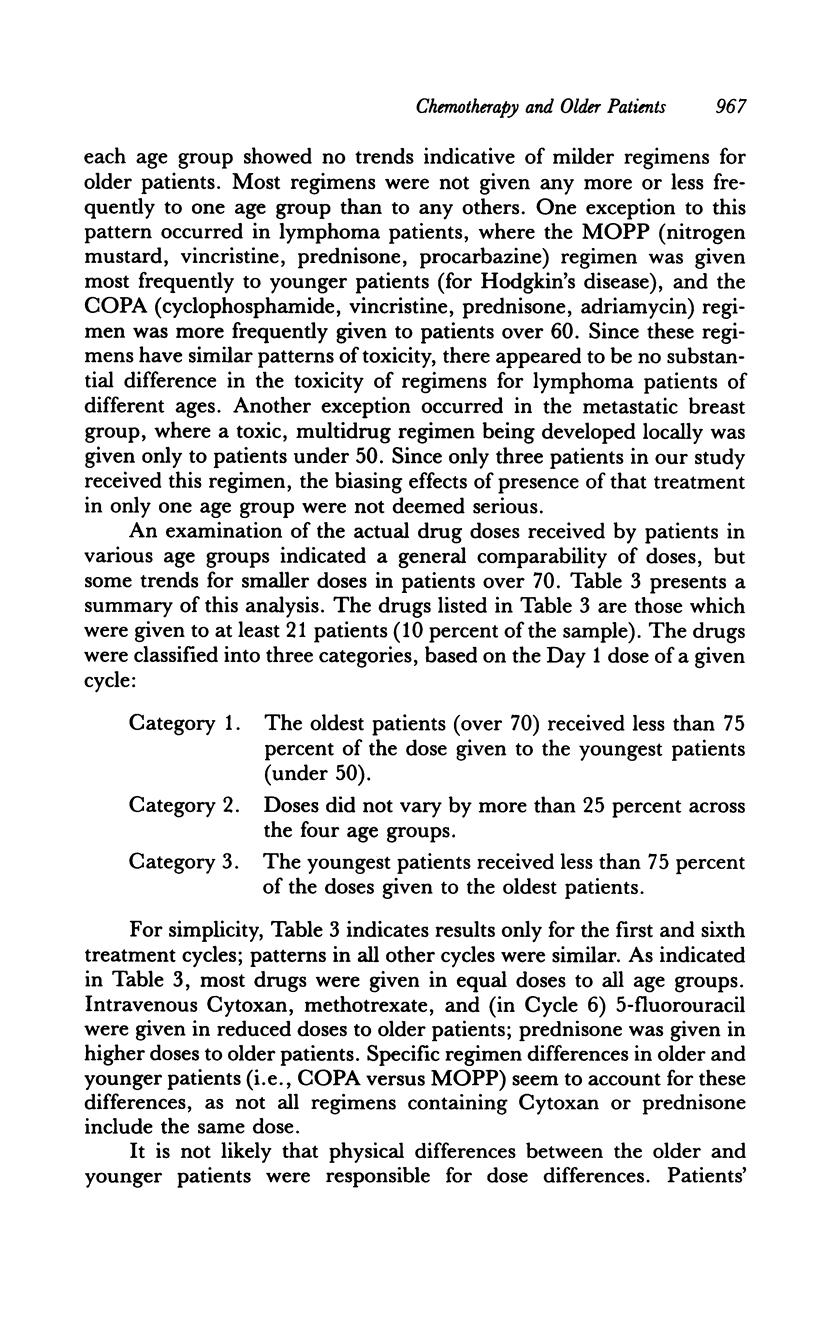
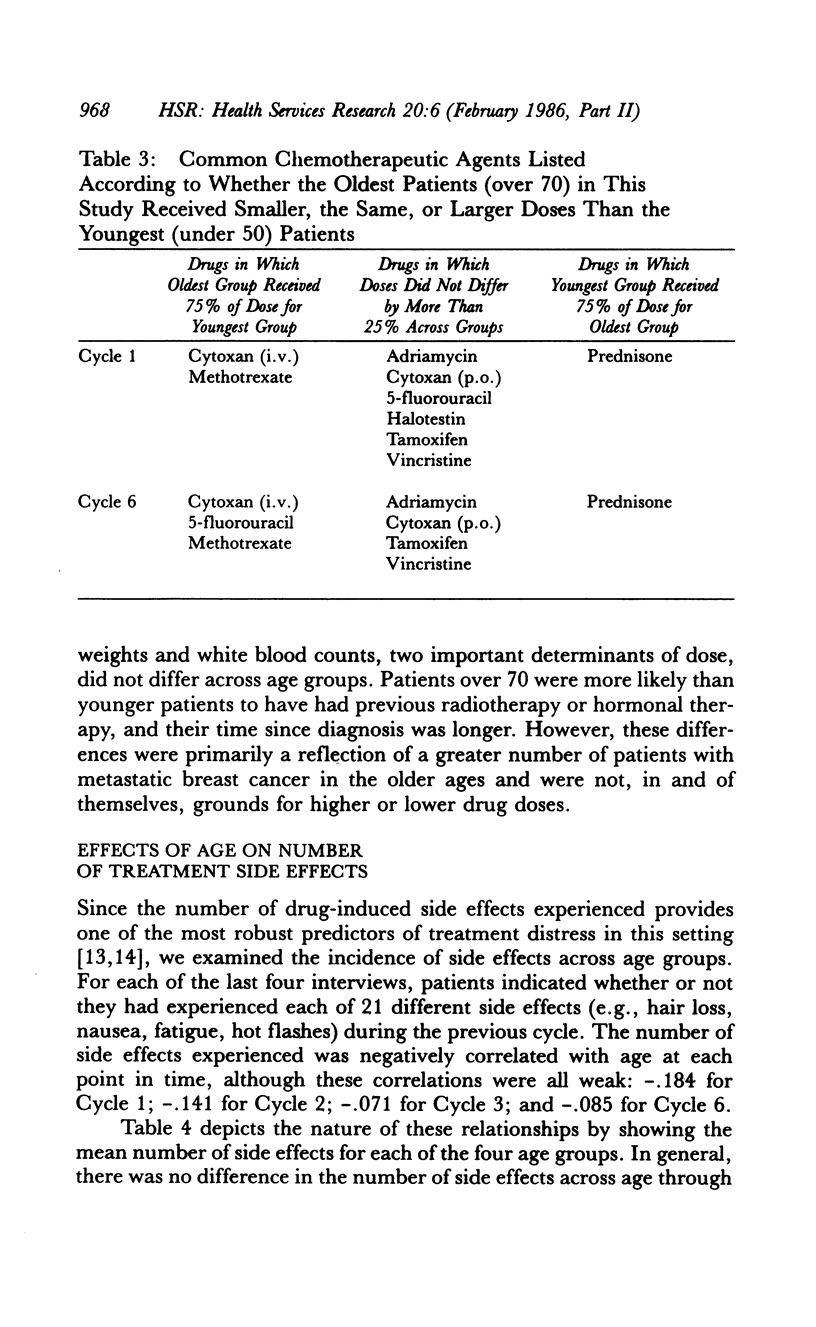
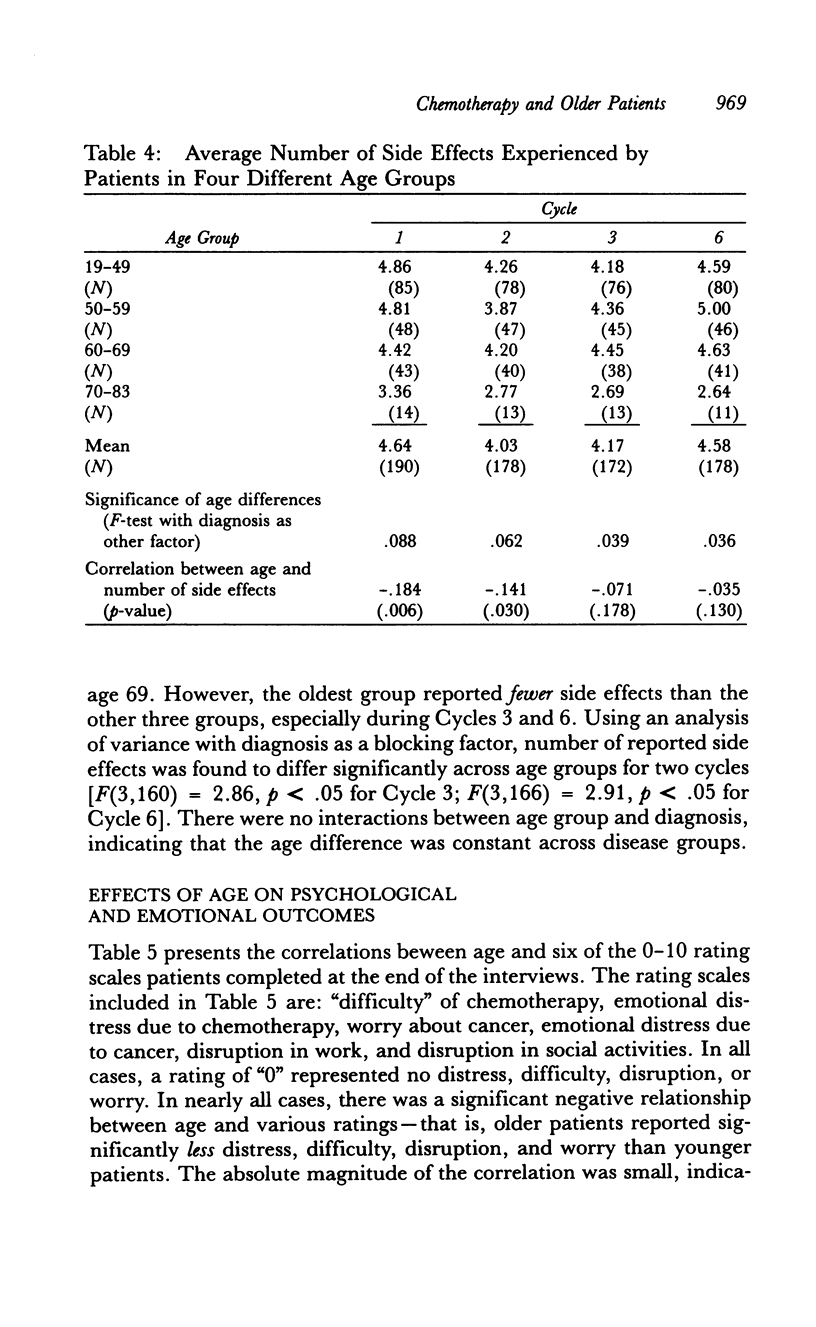
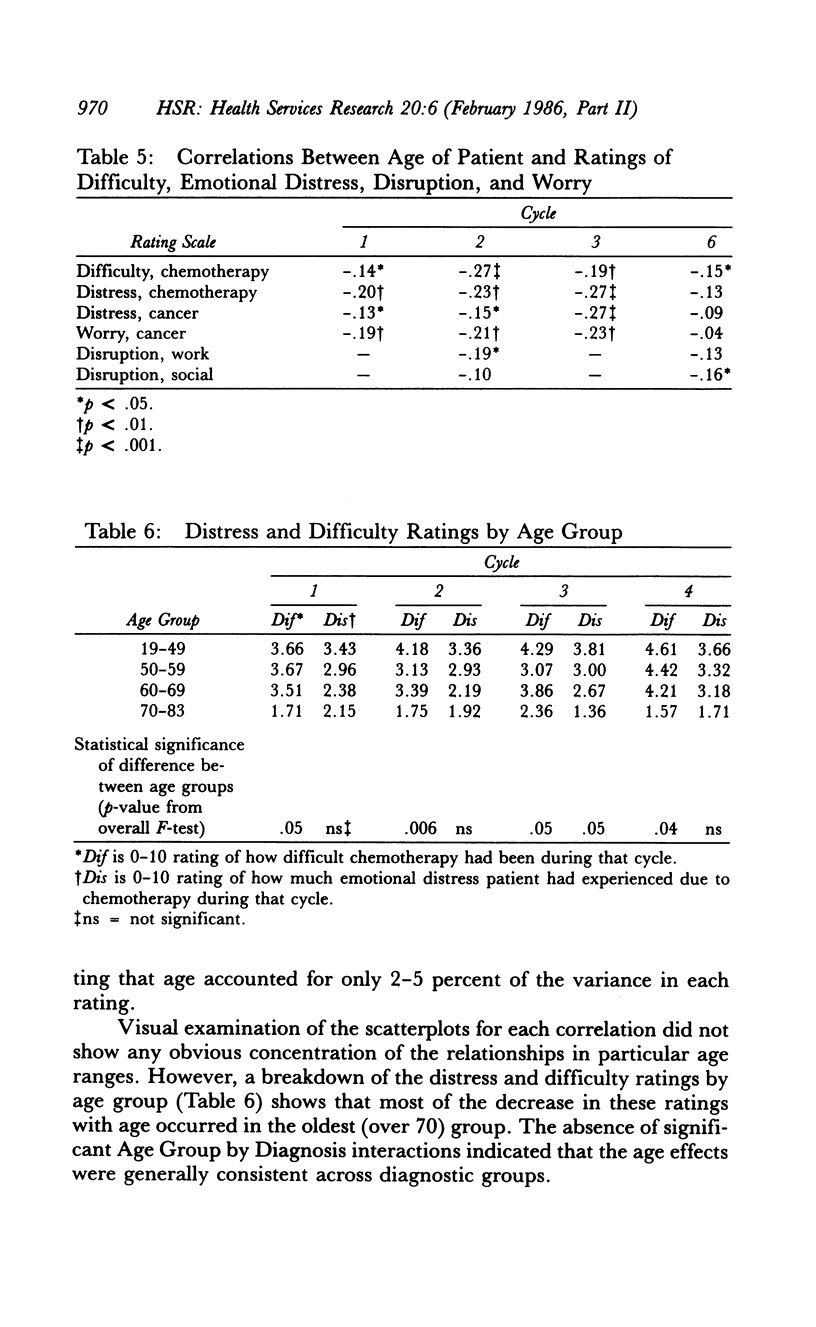
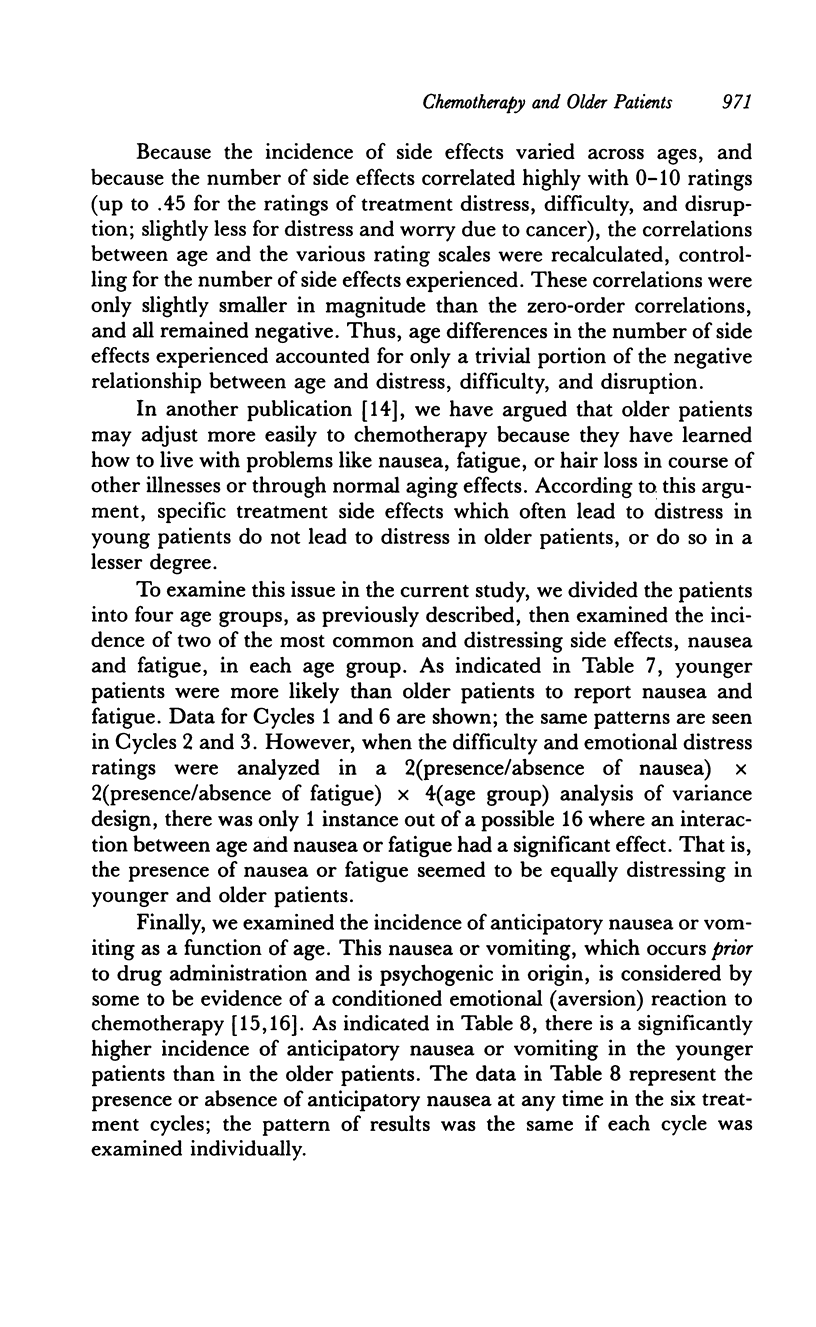
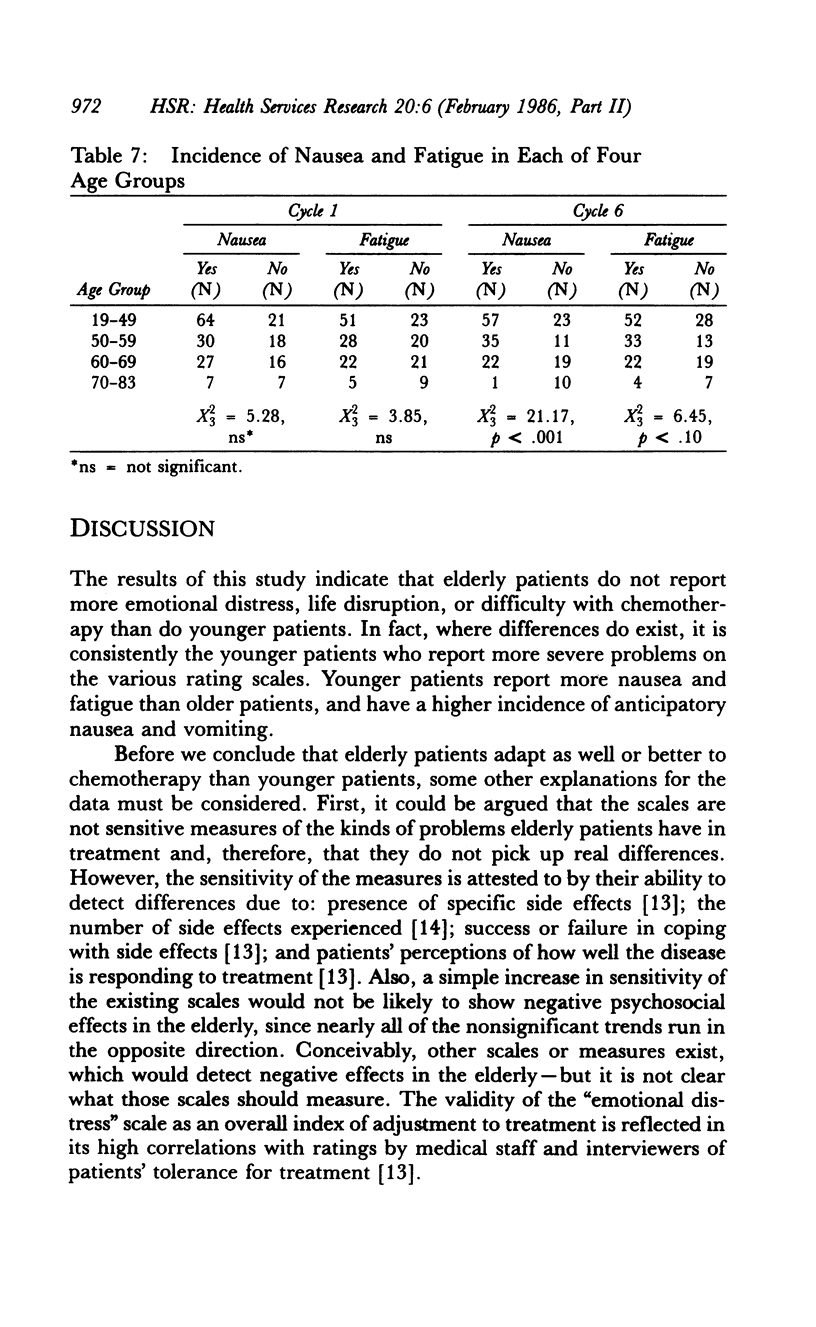
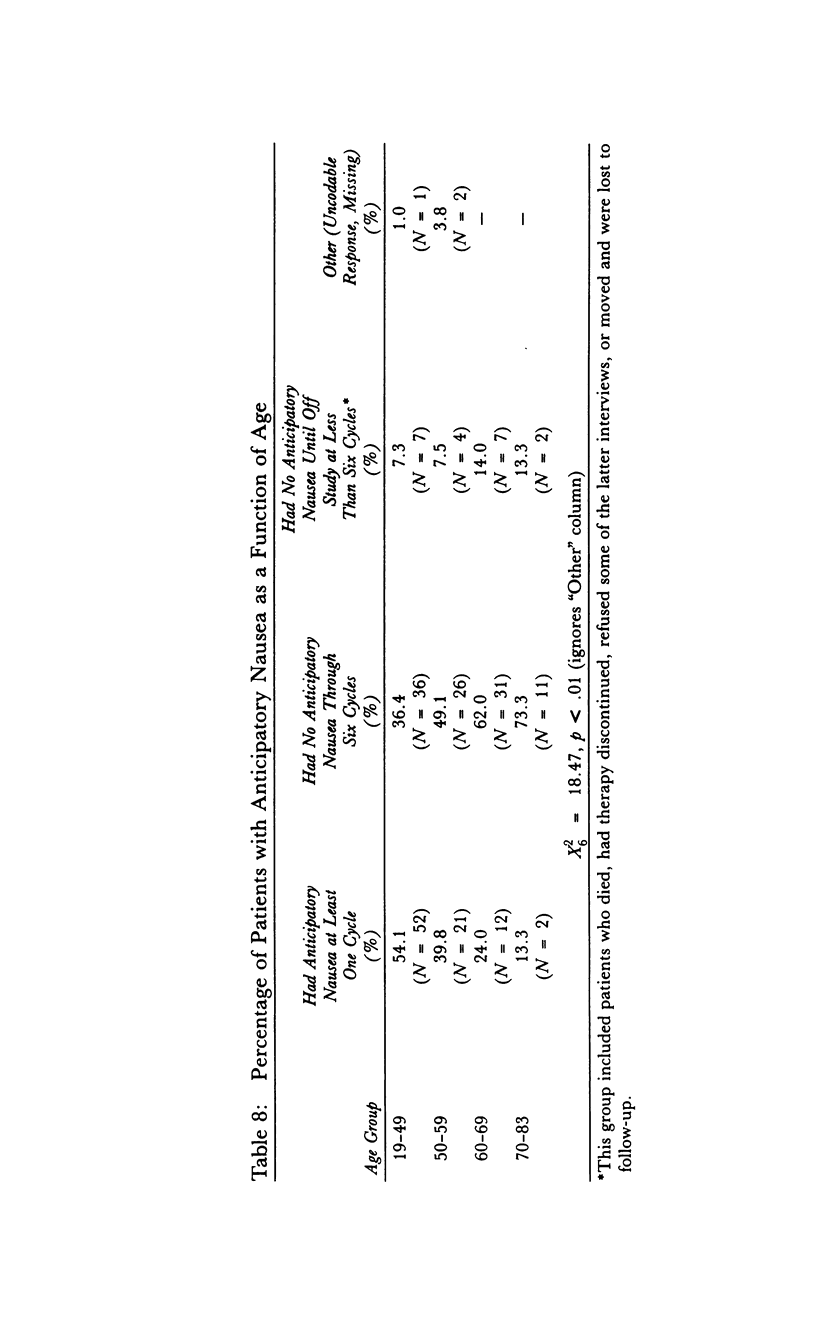
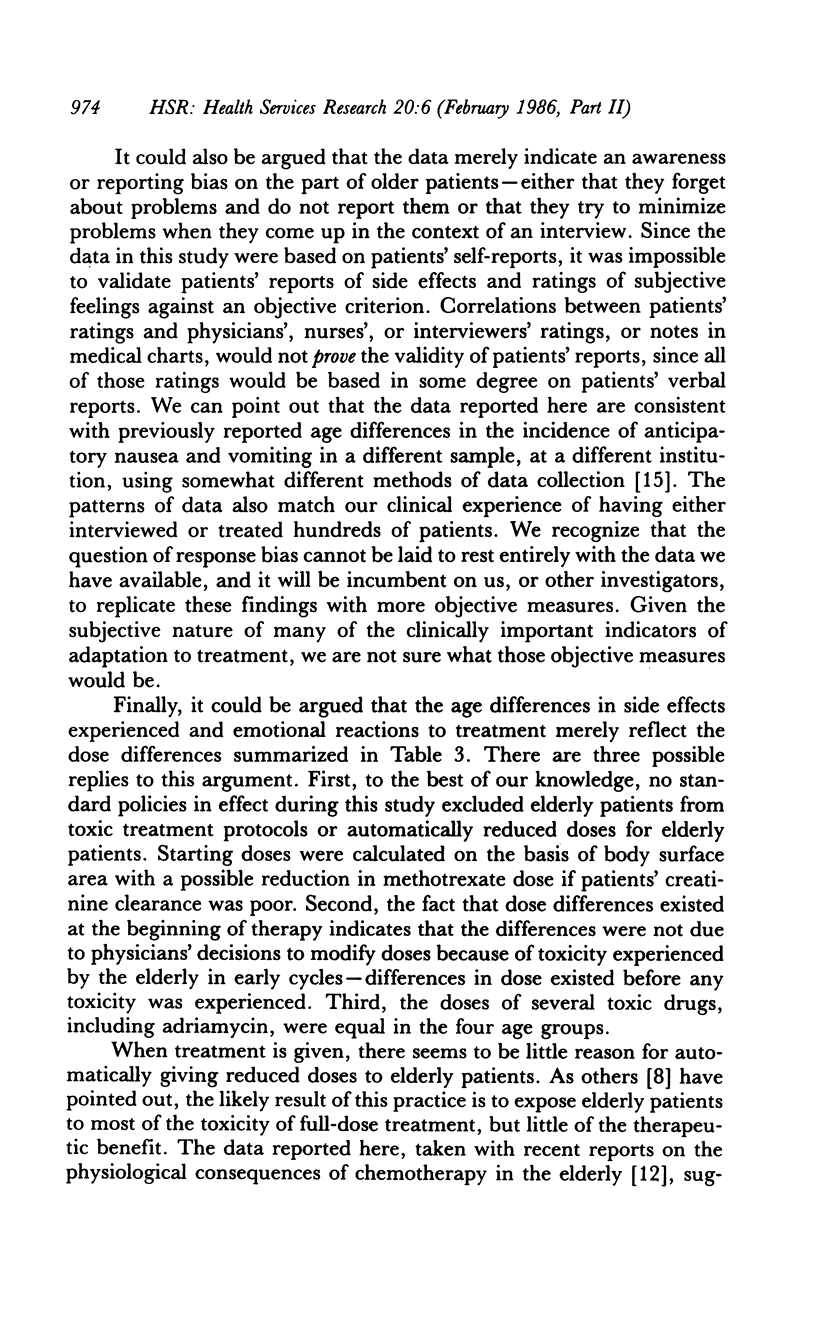
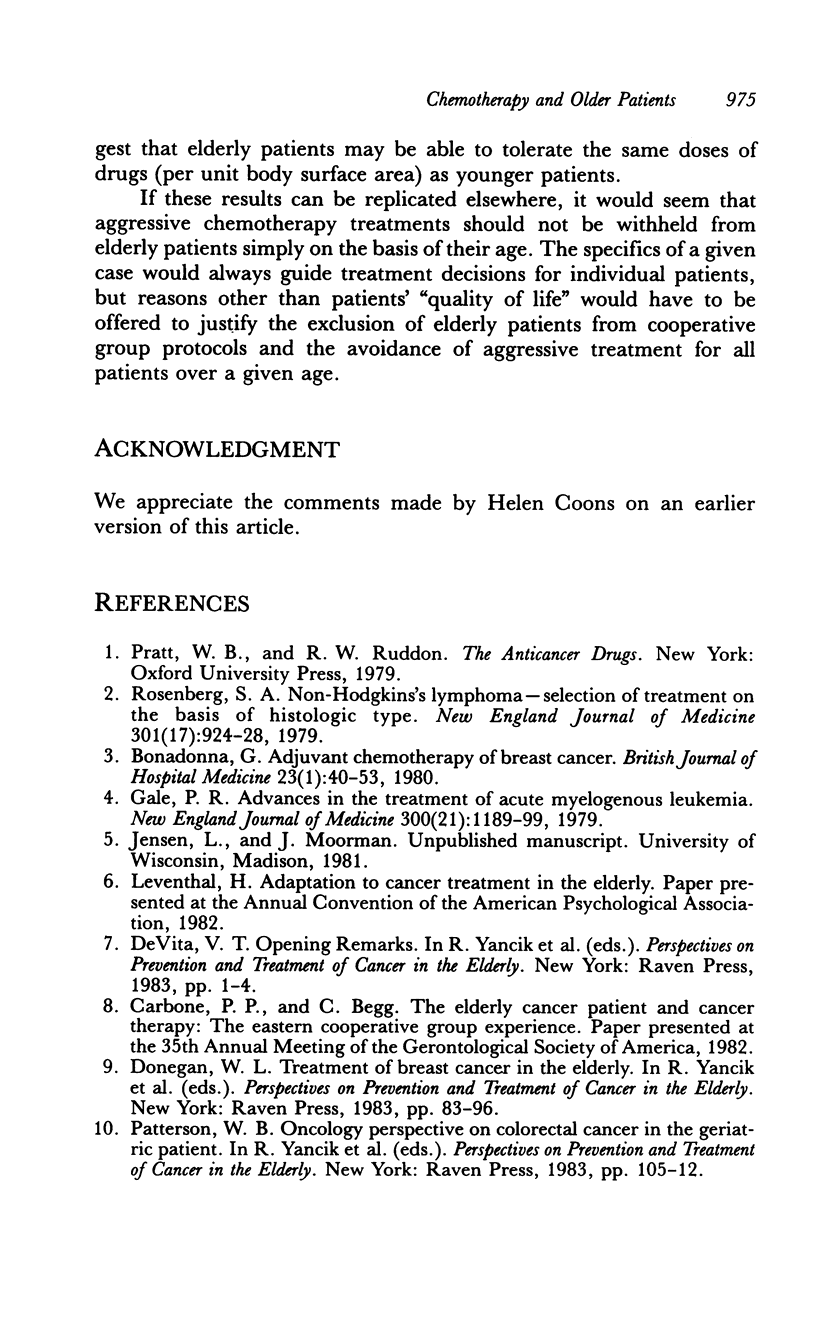
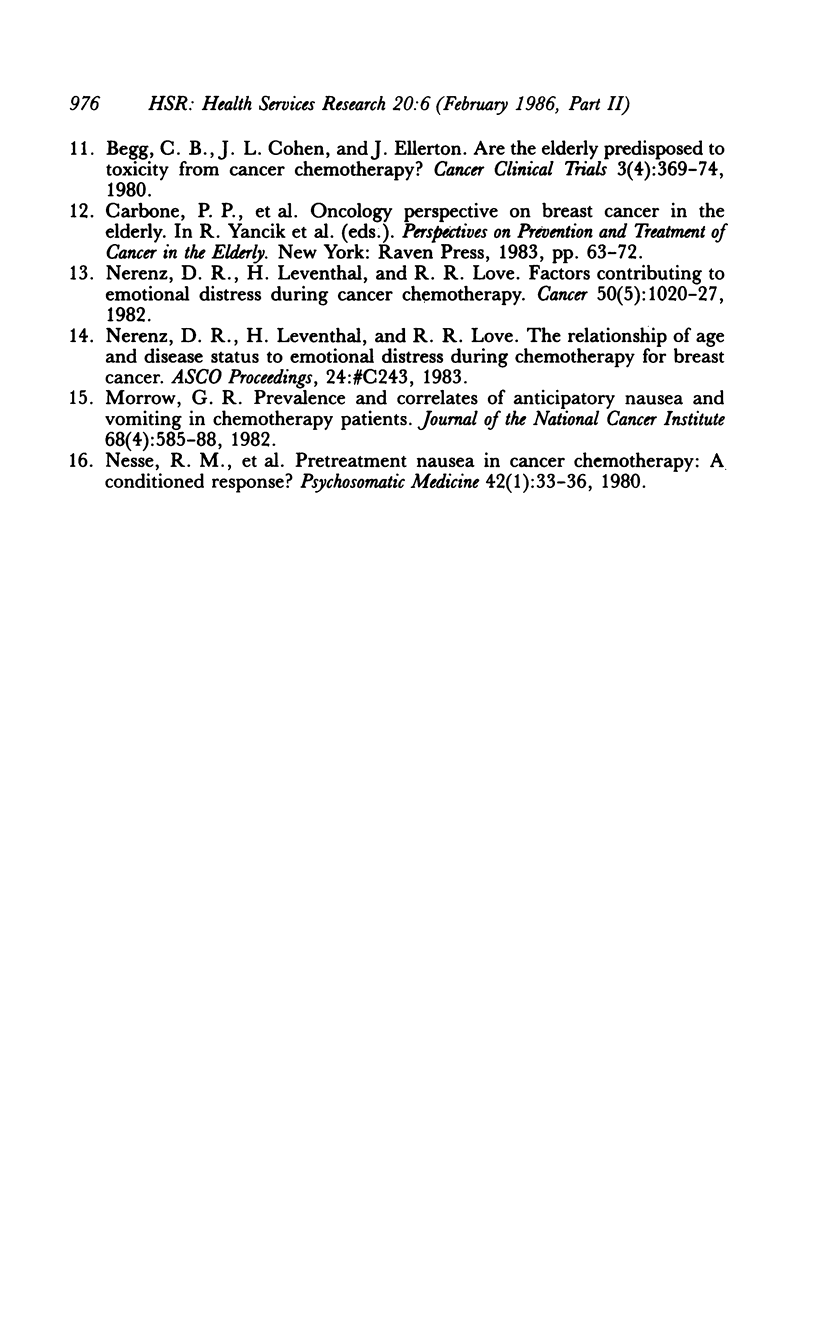
Selected References
These references are in PubMed. This may not be the complete list of references from this article.
- Begg C. B., Cohen J. L., Ellerton J. Are the elderly predisposed to toxicity from cancer chemotherapy? An investigation using data from the Eastern Cooperative Oncology Group. Cancer Clin Trials. 1980;3(4):369–374. [PubMed] [Google Scholar]
- Bonadonna G. Adjuvant chemotherapy of breast cancer. Br J Hosp Med. 1980 Jan;23(1):40–passim. [PubMed] [Google Scholar]
- Gale R. P. Advances in the treatment of acute myelogenous leukemia. N Engl J Med. 1979 May 24;300(21):1189–1199. doi: 10.1056/NEJM197905243002105. [DOI] [PubMed] [Google Scholar]
- Morrow G. R. Prevalence and correlates of anticipatory nausea and vomiting in chemotherapy patients. J Natl Cancer Inst. 1982 Apr;68(4):585–588. [PubMed] [Google Scholar]
- Nerenz D. R., Leventhal H., Love R. R. Factors contributing to emotional distress during cancer chemotherapy. Cancer. 1982 Sep 1;50(5):1020–1027. doi: 10.1002/1097-0142(19820901)50:5<1020::aid-cncr2820500534>3.0.co;2-j. [DOI] [PubMed] [Google Scholar]
- Nesse R. M., Carli T., Curtis G. C., Kleinman P. D. Pretreatment nausea in cancer chemotherapy: a conditioned response? Psychosom Med. 1980 Jan;42(1):33–36. doi: 10.1097/00006842-198001000-00004. [DOI] [PubMed] [Google Scholar]
- Rosenberg S. A. Current concepts in cancer: non-Hodgkin's lymphoma--selection of treatment on the basis of histologic type. N Engl J Med. 1979 Oct 25;301(17):924–928. doi: 10.1056/NEJM197910253011706. [DOI] [PubMed] [Google Scholar]


